Tien Giang On a March night, Mrs. Le Thu sat packing clothes into a backpack, preparing to send her two grandchildren back to their paternal grandparents' house while the children sobbed because they were about to be away from their grandmother.
"Only when we go back to grandma's house will we have water to bathe and wash clothes. It's so itchy here, I can't stand it," the 62-year-old woman scolded the two children. Before the children got in the car, she called them over and told them, "Remember to call grandma tonight so you don't miss her so much."
After two weeks of trying to survive without water, her family of six knew they couldn't take it anymore. Everyone decided to split up and stay with relatives.
Mrs. Thu's house is in Hamlet 4, Tan Phuoc Commune, Go Cong Dong District. As a coastal district, this is also the first locality in the West to declare an emergency due to saltwater intrusion and serious shortage of domestic water for thousands of households.
Entering the dry season, women carry buckets to collect water from the tap all night long, but after a few days the water stops completely, disrupting family life. Their only hope now is water from public taps or water trucks from charitable donors from Ho Chi Minh City, Binh Duong , and My Tho City (Tien Giang Province) that have poured in to provide relief.
However, her daughter works far away so she only comes home a few times a week. Mrs. Thu had spinal surgery four years ago and still wears a back brace so she can’t carry water home. She can only ask her neighbors for help, but not much, 5 to 6 20-liter cans a day, which the grandmother and grandchildren save up.
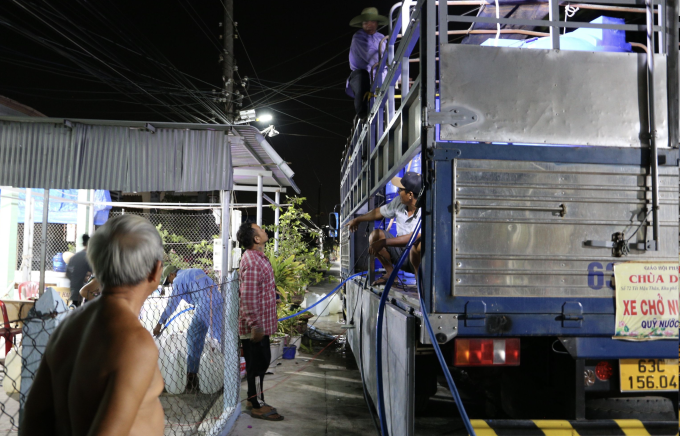
People in Hamlet 4, Tan Phuoc Commune, Go Cong Dong District, Tien Giang Province get water for daily use from a charity tanker on the evening of April 11. Photo: Ngoc Ngan
"If we ask them too much, we're afraid of being bothered, but there's no other way," said Mrs. Thu. She has to be stricter with herself and her three grandchildren, ages 12, 10, and 3. Clothes are rarely washed. To reduce the smell, every day she makes everyone in the family take them off, shake them, dry them in the sun to reduce the body odor and sweat odor, and then wear them again the next day. Each time she bathes, she only uses about half a bucket, and doesn't use shower gel or soap because "that much water is not enough to clean the foam."
"The smell is bearable, but if we don't bathe regularly, every night the kids have to toss and turn, scratching and unable to sleep. It's a pity," Mrs. Thu explained. Not to mention the kids have to go to school, eat, and use the bathroom regularly.
Mrs. Thu discussed with her daughter about sending her two grandchildren, 10 years old and 3 years old, to their grandparents' house 10 km away, closer to the market and a more stable water source, while she stayed with her 12-year-old granddaughter to help carry water and do chores around the house.
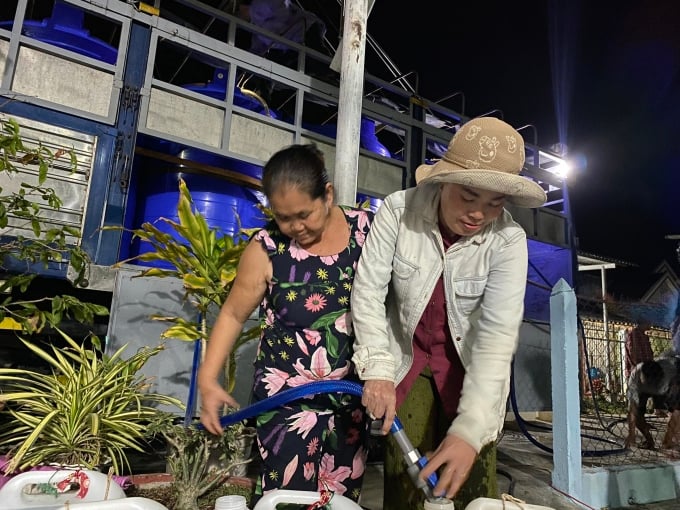
Ms. Tron (wearing a hat) pumps water from a charity tank into a can for a family in Go Cong Dong district to use, on the evening of April 11. Photo: Ngoc Ngan
During the peak days of drought and salinity, Ms. Trieu Thi Tron, 48 years old, lived a life of sleeping during the day and staying awake at night to watch for water. Her phone set the alarm from 5am to 11pm to wake her up because that was the "good time" to collect water.
She has two sons, one married, two aged four and five. She and her husband take on the task of staying up all night to watch and fetch water so that the children can sleep through the night before going to work the next morning.
The alarm rang, and Ms. Tron hurriedly took four large plastic bags, dozens of buckets, and a large jar to catch the water. The water flow was still weaker than usual, so someone needed to be on guard to turn off the water and transfer it to another container. At around 2 a.m., her husband got up to help carry the water and took over the watch until morning.
"I can lie down for two hours and then wake up to feed the goats, cook, and bathe the kids," she said. "The drought and salinity have only become more severe in the past four years, so I haven't had time to prepare anything."
But this did not worry her as much as in the afternoon, the water tank in the house was empty but the water from the tap was no longer flowing, even though they had used it very sparingly. The water used to wash the vegetables was used to wash the dishes and flush the toilet. Ms. Tron bathed her grandchild in the basin and then used the water again to clean the house.
Out of options, she took the can to the public station and saw nearly ten people waiting, having to queue for nearly half an hour.
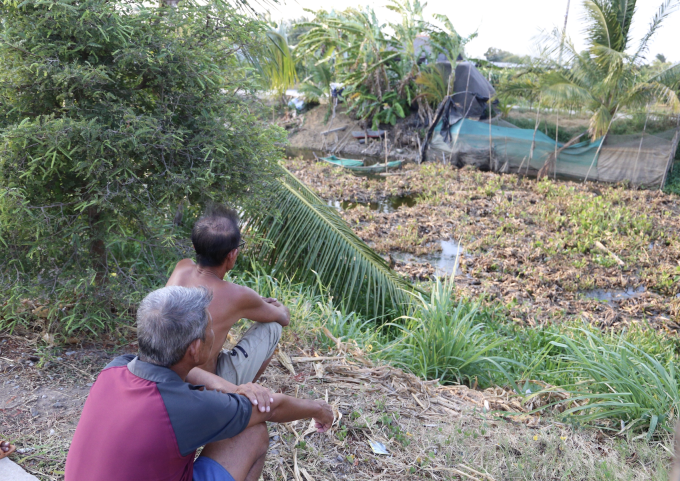
A nearly dry canal in Go Cong Dong district, Tien Giang province, April 2024. Photo: Ngoc Ngan
Three kilometers away, Ms. Hong Diep, 48 years old, was also in the line of people waiting to collect water. The woman has bone and joint disease and does not dare to carry heavy loads, so she wrote her name on the bucket and asked her son to help her when he got home from school. At home, Ms. Diep has an elderly mother and her husband goes fishing at sea and comes home once a month.
For nearly a month now, Ms. Diep has been unable to concentrate on her seafood stall because she is worried about water. In the evening, the water stored in her house has gradually run out, and she has not heard from a charity group that will bring water to the village tomorrow, making her feel anxious.
She saved dozens of charity groups in different provinces and cities on her phone, asking them to connect her with people in need of water in the hamlet. Diep said she felt embarrassed because her son had to spend less time studying at night and helping his mother carry water.
Mr. Nguyen Van Mot, head of Kinh Duoi Hamlet, Binh An Commune, Go Cong Dong District, said that the drought and salinity have seriously affected people's lives. The hamlet has arranged public water taps but it is not enough for hundreds of households. Cherry and dragon fruit growers have now had to stop all farming activities.
People mainly use bottled purified water for drinking and eating. The public tap area is busiest between 7am and 9am, and at night there are still people lining up because workers come home late and the tap water flows more strongly.
The National Center for Hydro-Meteorological Forecasting said that saline intrusion in the Mekong Delta this year is higher than the average of many years, but not as severe as in 2015-2016 and 2019-2020. The saline intrusion will peak in April-May (April 8-13, April 22-28, May 7-11).
This year's drought and salinity are forecast to cause 30,000 households to lack domestic water, and 20,000 hectares of winter-spring rice sown outside the recommended schedule will lack water.
Since sending her grandchild away, Mrs. Thu’s house has become a gathering place in the hamlet for people in the neighborhood to bring plastic cans to. The house is located right at the beginning of the alley, convenient for charity water trucks to stop and let people pump.
On the evening of April 12, while her daughter was carrying a bucket of water into the house, Mrs. Thu called her grandchild. "I just hope this season will pass quickly so I can bring my grandchild home," she said.
Ngoc Ngan
Source



![[Photo] The ceremonial artillery is ready to "fire" for the second parade rehearsal at My Dinh National Stadium.](https://vstatic.vietnam.vn/vietnam/resource/IMAGE/2025/8/24/883ec3bbdf6d4fba83aee5c950955c7c)
![[Photo] Impressive image of 31 planes taking flight in the sky of Hanoi during their first joint training](https://vstatic.vietnam.vn/vietnam/resource/IMAGE/2025/8/24/2f52b7105aa4469e9bdad9c60008c2a0)


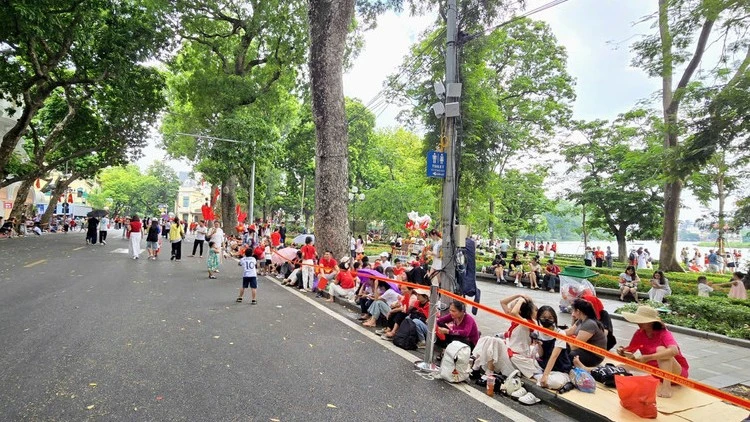





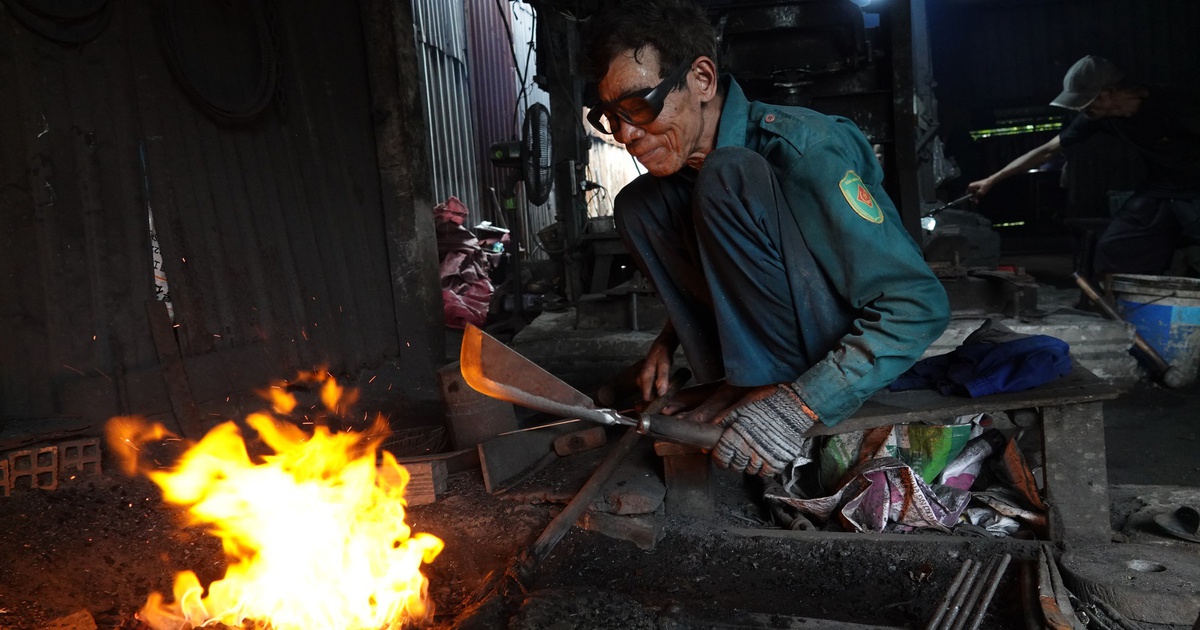


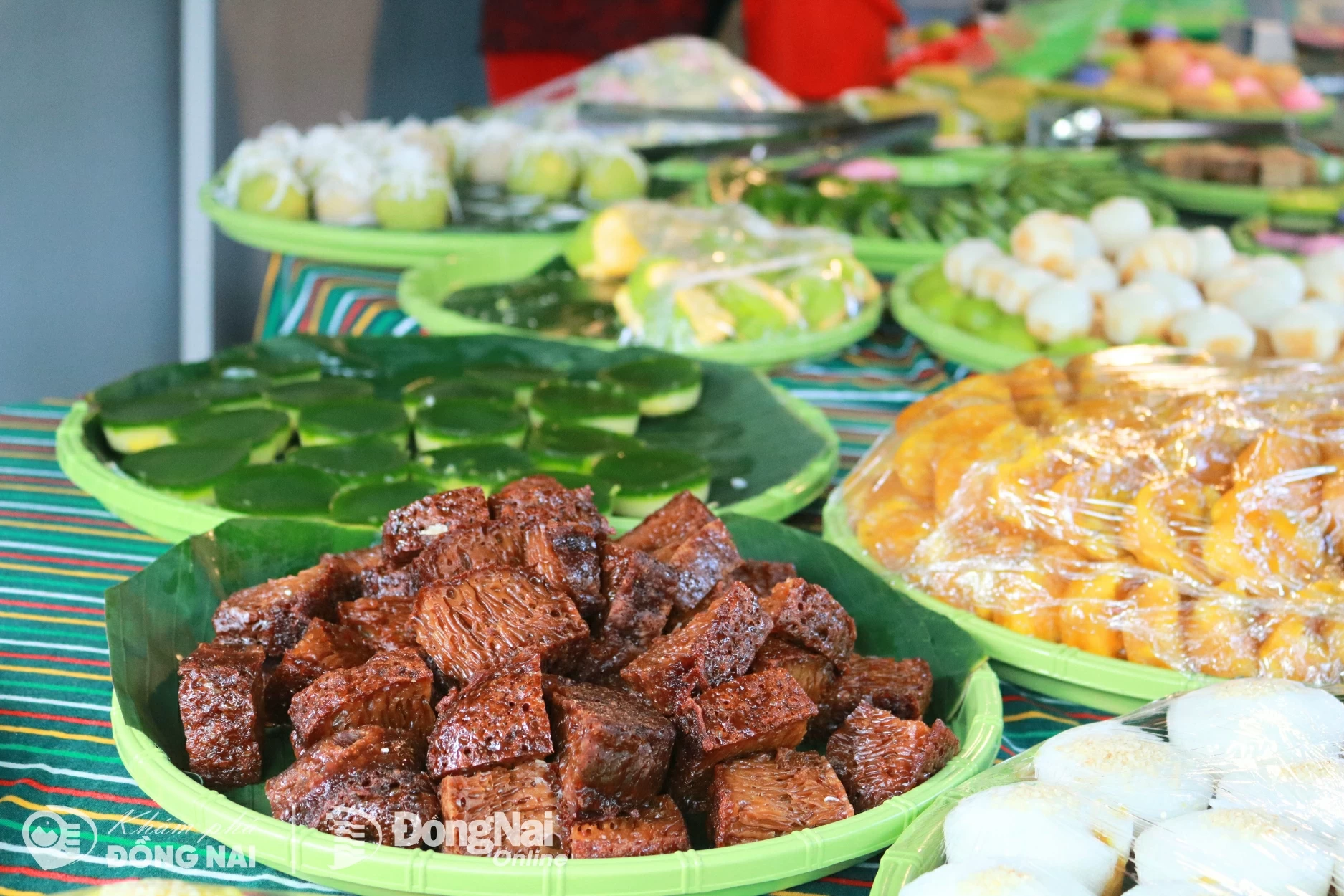

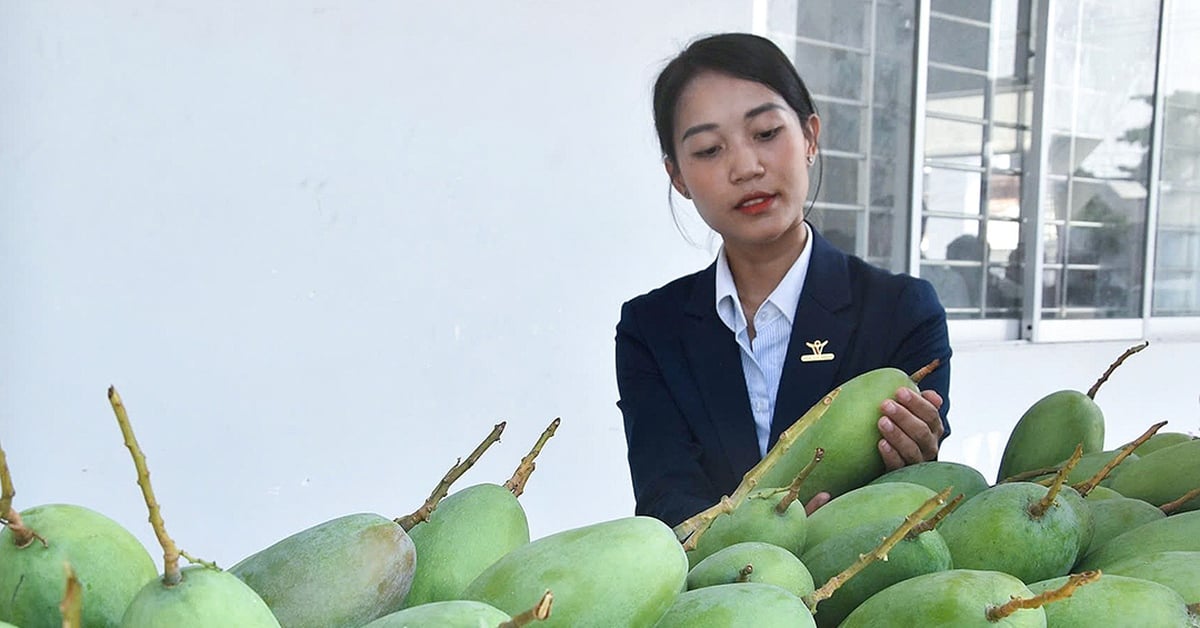
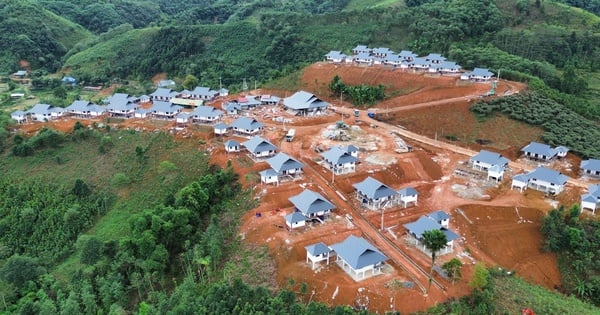



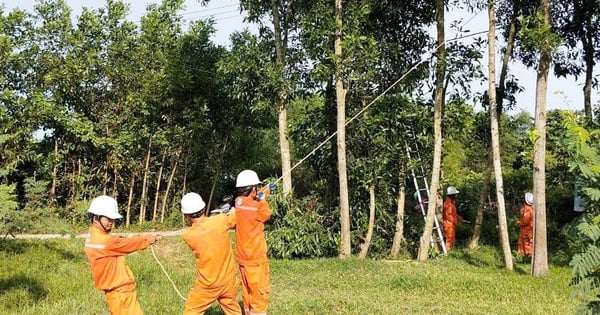


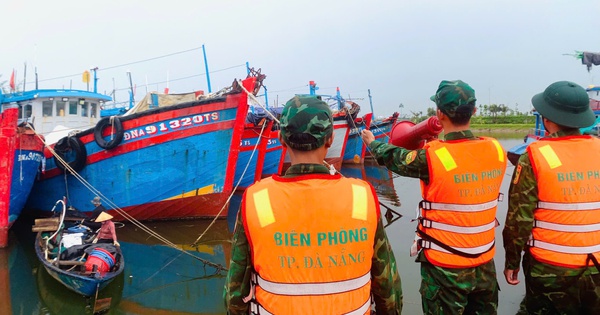
























































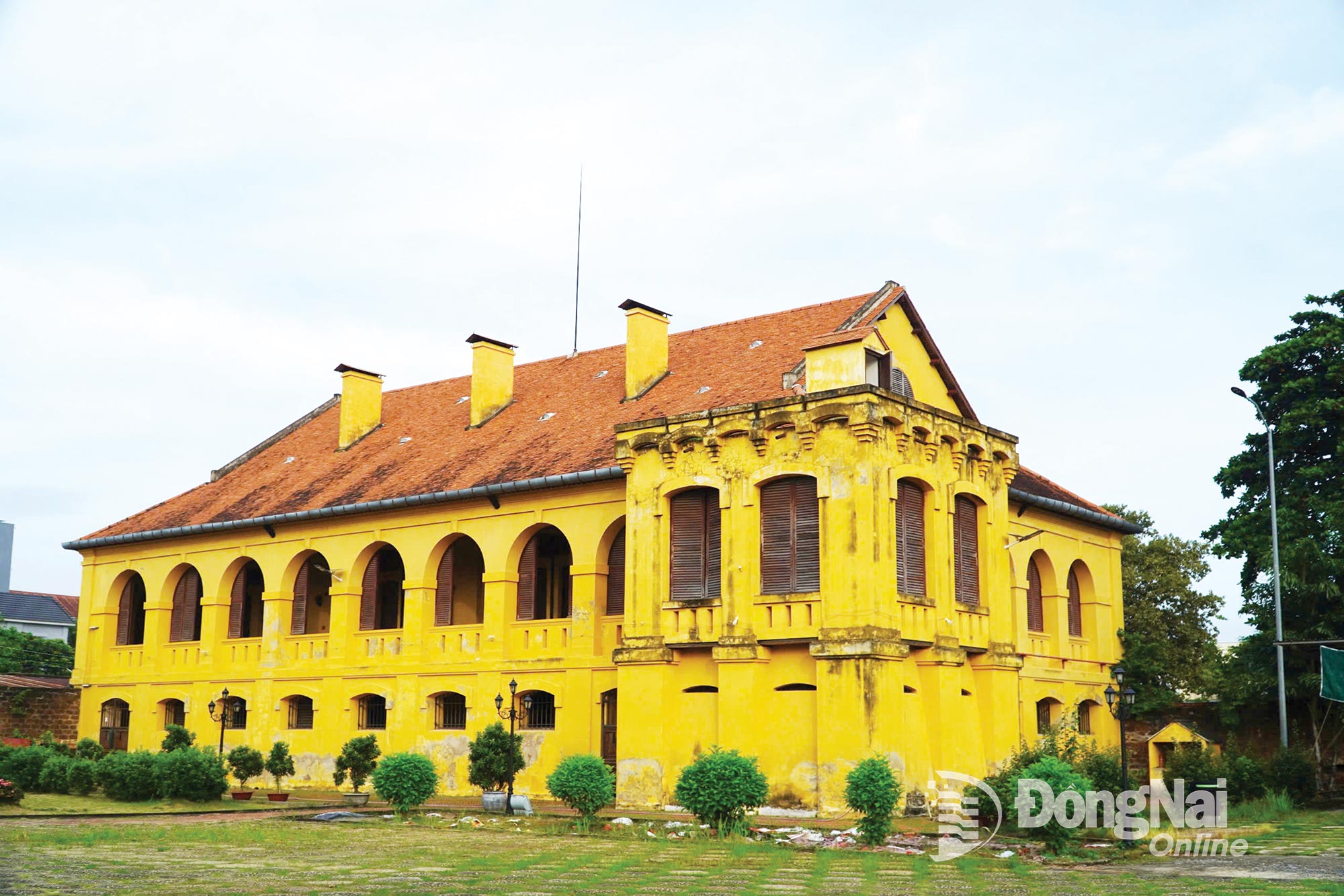
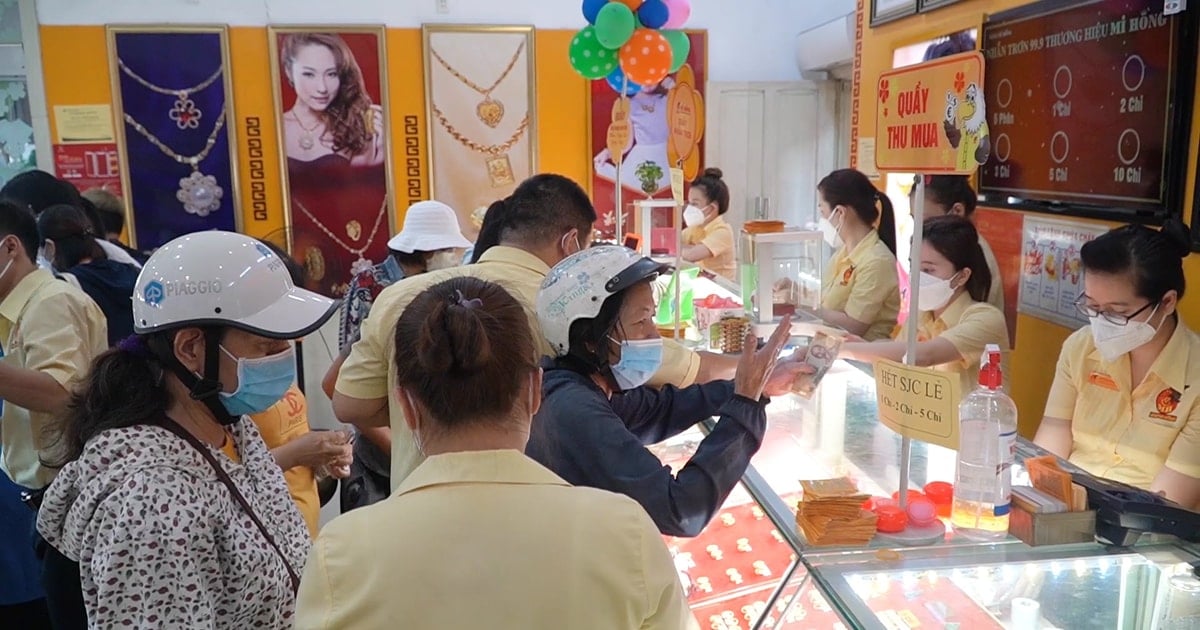



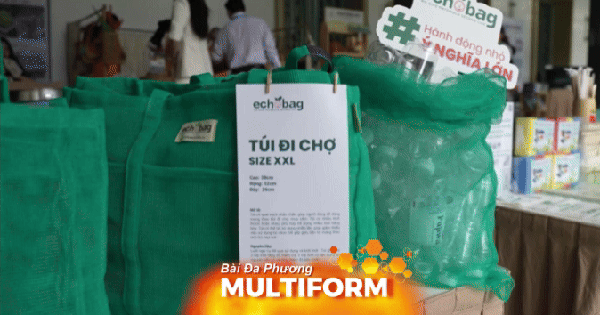
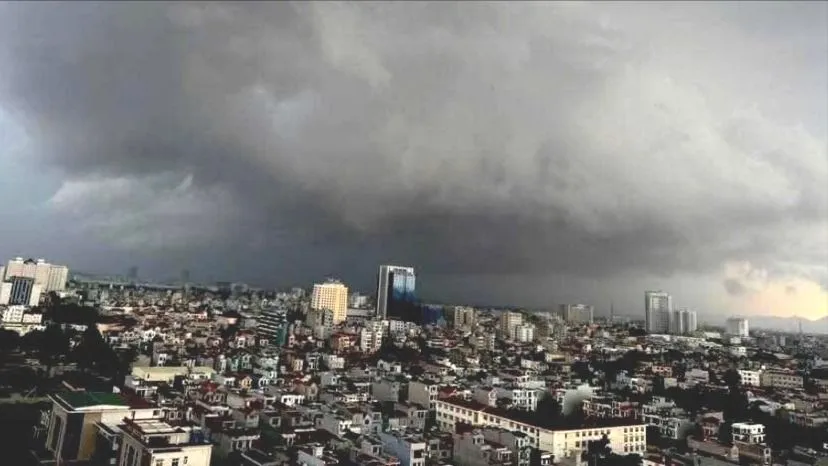
















Comment (0)